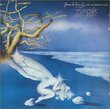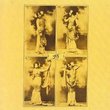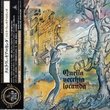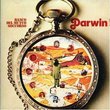| All Artists: Quella Vecchia Locanda Title: Il Tempo Della Gioia Members Wishing: 0 Total Copies: 0 Release Date: 10/7/2003 Album Type: Import Genre: Rock Style: Number of Discs: 1 SwapaCD Credits: 1 UPC: 743219807328 |
Search - Quella Vecchia Locanda :: Il Tempo Della Gioia
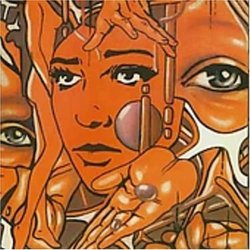 | Quella Vecchia Locanda Il Tempo Della Gioia Genre: Rock
Limited edition reissue of the progressive rock act's 1972album packaged in a miniature gatefold LP sleeve. BMG. 2003. |
Larger Image |
CD DetailsSynopsis
Album Description Limited edition reissue of the progressive rock act's 1972album packaged in a miniature gatefold LP sleeve. BMG. 2003. Similar CDs
|
CD ReviewsWonderful Music Jan Claus Di Blasio | Castel Gandolfo, Rome,Italy | 09/15/2005 (5 out of 5 stars) "My uncle is Claudio Filice, the violinist from the second group. we were talking of his experience right now and he was thinking of putting the band together again to make a few new cd's. I've listened to his music, he teaches violin in Molise now and has made music for many itaian movies ,and I must say that his rock stands among the best of its time, including Matia Bazar, Genesis and Pooh. I think it's well worth listening to, the instrumental and the lyrics are fabulous." Very classically oriented Italian prog with some subtle diss Jeffrey J.Park | Massachusetts, USA | 05/20/2006 (5 out of 5 stars) "This is a great recording of very classically influenced Italian progressive rock that was released in 1974. The musicians on the album are all excellent and include the wickedly talented Claudio Gilice (violin), Giorgio Giorgi (vocals, flute, piccolo), Elbassimo Giorgi (vocals, electric bass, string bass); fantastic keyboardist Elbassimo Roselli (acoustic piano; harpsichord; electric piano); Patrick Fraina (drums); and Raimondo Cocco (vocals, acoustic and electric guitar). The five tracks on the album range in length from 4'12 to 9'42, and the entire album is only 34 minutes in length. What sets this album apart from all of the other mid 1970s Italian prog includes the instrumentation, which is mostly dominated by acoustic instruments, and the compositions themselves, which are the most polite rock pieces I have ever heard. In fact it is a little like listening to a Baroque period string ensemble with an electric bassist, the occasional clean sounding and delicate electric guitar, a drummer, and good vocalists (the vocals are in Italian). I should note that although synth fans won't like this album too much, there is a brief passage at the end of the album that lasts for about 45 seconds or thereabouts, that features some string synth and an ARP 2600 "explosion". In general, this is a very warm and intimate album that is just plain nice to listen to - the acoustic piano work and the violin playing is excellent. Furthermore, the flute work reminds me a little of PFM's quieter moments. There are however, fleeting moments when the arrangements get really interesting and become a little more angular and modern classical sounding. I should note that these passages are neither overbearing nor harsh - the instrumentation is the same, with incredible violin playing weaving in and out and around the (great) drumming, electric bass and soft electric guitar parts. Things just get a little more insistent. This album was remastered by BMG Ricordi in 2003 and reproduces the LP format. Although the mini-LP format is cool and the sound quality is excellent, there are no informative tidbits in the liner notes. All in all this is a great album of Italian prog that is a little different than most of the heavier sounding albums of the mid 1970s. Highly recommended along with Florian (1979) by Le Orme, which is a late period attempt at arranging pop/rock tunes to be played on acoustic instruments." The best italian progressive Banco De Santander | Canary | 10/23/2009 (4 out of 5 stars) "Excellent Italian progressive album of the golden years. Well, this is the second album by this Italian band, formed in Rome in 1972, also debuting at the festival of Villa Pamphili. Well, this is a very good job, which follows the same line classical symphony, the first, and even exceed it. It is a pity that they only got these two magnificent albums.
" |

 Track Listings (5) - Disc #1
Track Listings (5) - Disc #1